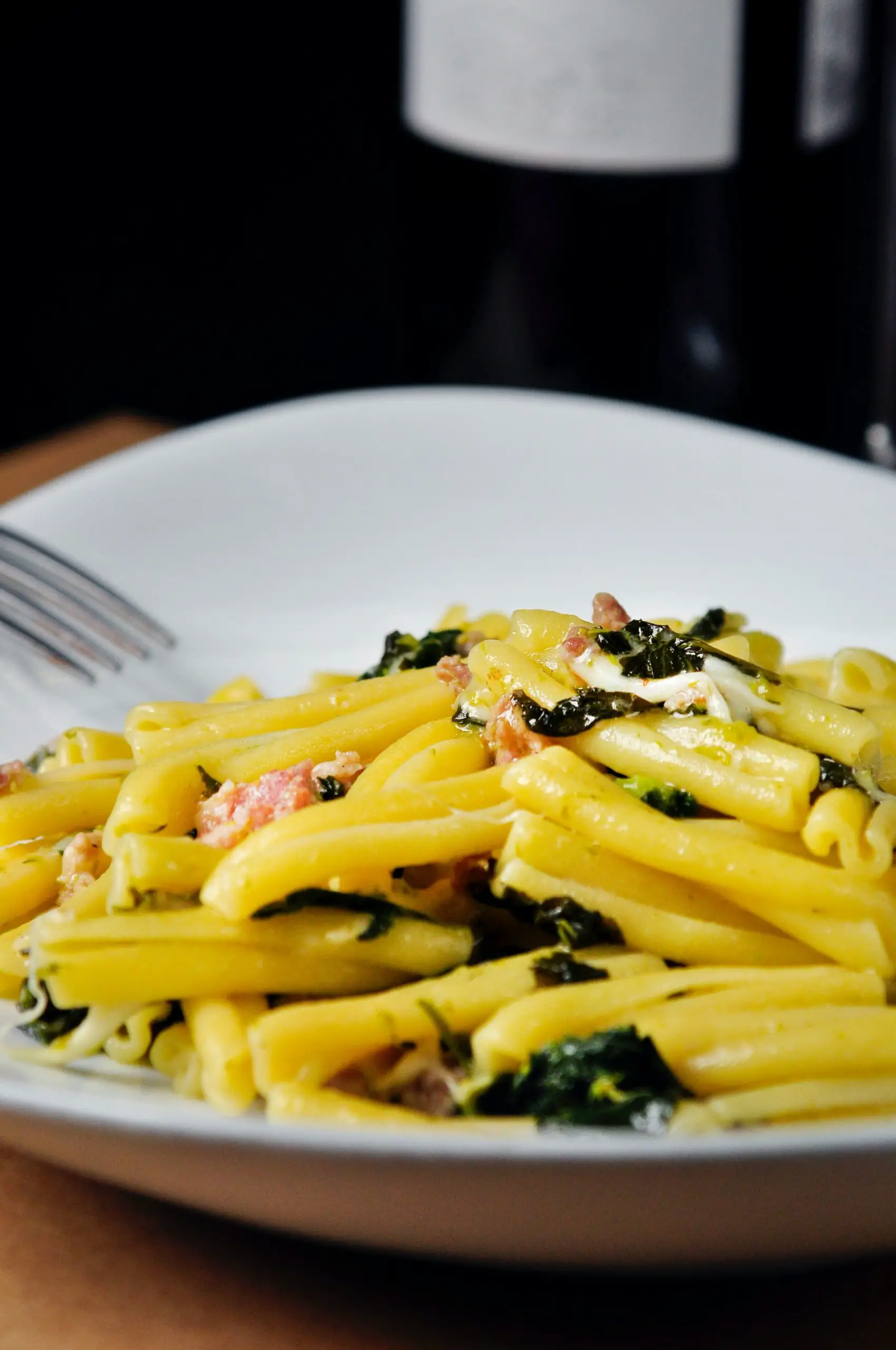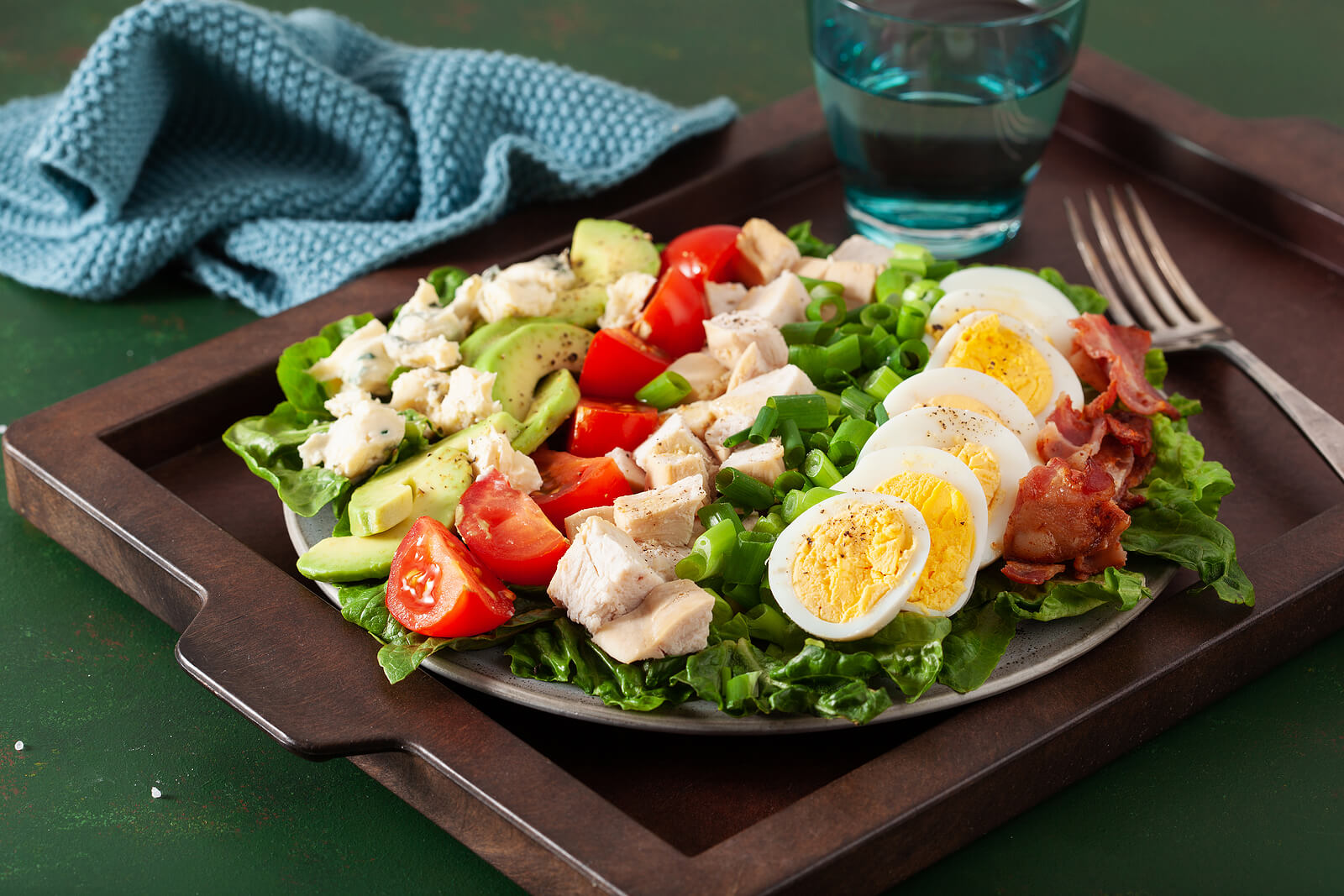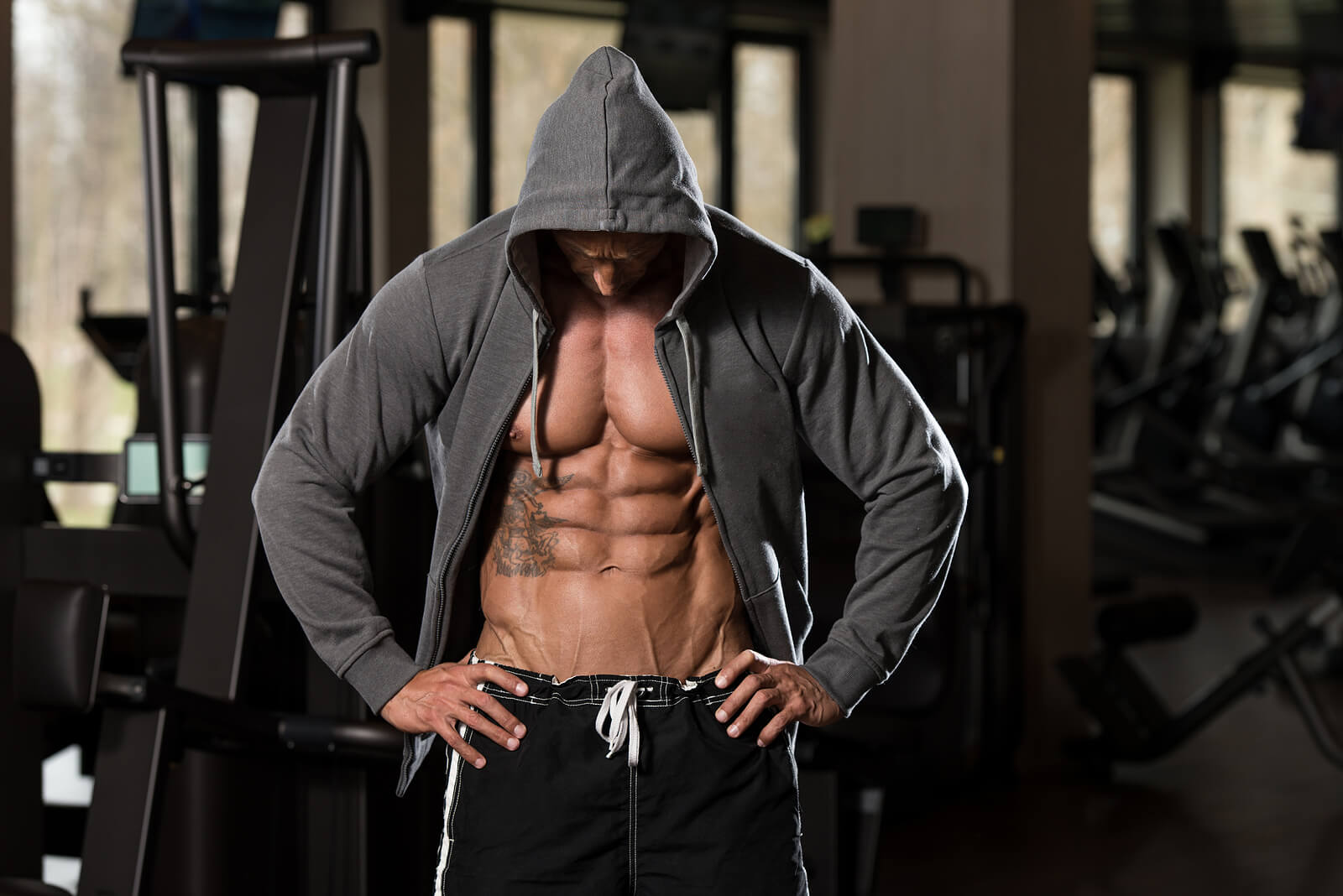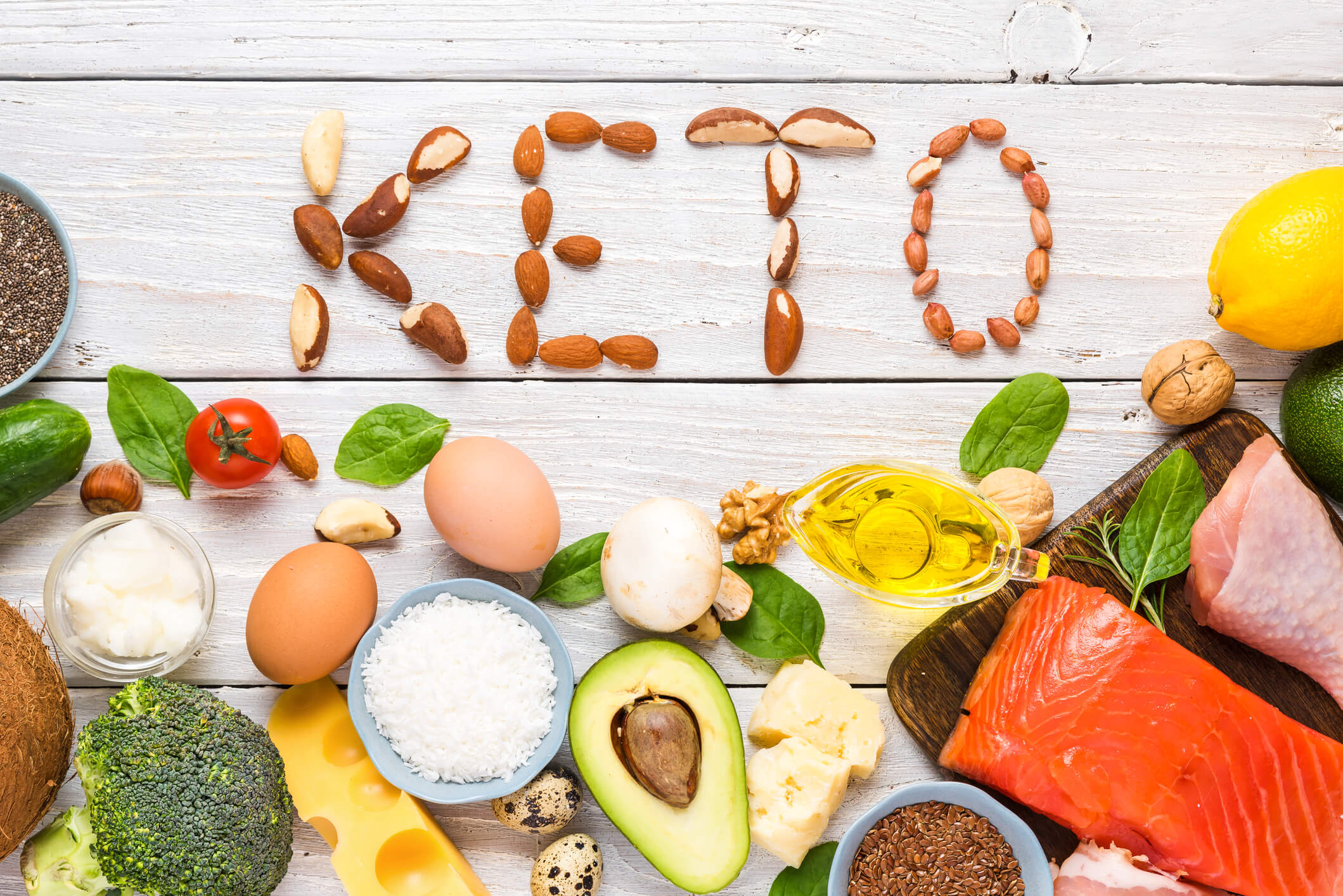If you’re looking to get ripped, you might be wondering whether you need to cut carbs out of your diet. Carbohydrates are a macronutrient that is found in many foods, including fruits, vegetables, grains, and dairy products. They are an important source of energy for your body, but some people believe that they can prevent you from achieving a lean, muscular physique.
However, the truth is that you can still eat carbs and get ripped. In fact, carbohydrates are an essential part of a healthy, balanced diet, and cutting them out completely can actually be harmful to your health.
Carbs provide your body with the energy it needs to power through intense workouts, and they also help to regulate your blood sugar levels and keep you feeling full and satisfied. So, if you want to build muscle and burn fat, you don’t need to give up carbs entirely – you just need to make sure you’re eating the right ones in the right amounts.
Understanding Carbs and Their Role in Nutrition
The Basics of Carbohydrates
Carbohydrates are one of the three macronutrients, along with protein and fat. They are an essential source of energy for your body and are found in a wide range of foods, including fruits, vegetables, grains, and dairy products.
Carbohydrates are made up of three components: fiber, starch, and sugar. Fiber is an important component of a healthy diet, as it helps to regulate digestion and can reduce the risk of certain diseases. Starch is a complex carbohydrate that is broken down into glucose in the body, providing a slow, steady source of energy. Sugar, on the other hand, is a simple carbohydrate that is quickly broken down into glucose, providing a quick source of energy.
Carbs and Energy Production
Carbohydrates are the primary source of energy for your body. When you eat carbs, your body breaks them down into glucose, which is then used by your cells to produce energy. Glucose that is not immediately used by your body is stored in your liver and muscles as glycogen, which can be used later when you need energy.
Carbohydrates are especially important for athletes and those who engage in regular physical activity, as they provide the energy needed to perform at a high level. However, it’s important to consume the right types of carbs at the right times. Consuming simple carbs, such as candy or soda, can cause a quick spike in blood sugar levels, followed by a crash in energy. Complex carbs, such as whole grains and vegetables, provide a more steady source of energy.
Carbs and Insulin
When you eat carbs, your body releases insulin, a hormone that helps to regulate blood sugar levels. Insulin helps to transport glucose from your bloodstream into your cells, where it can be used for energy or stored as glycogen.
Consuming too many simple carbs, especially those with a high glycemic index, can cause your body to release too much insulin, leading to insulin resistance and an increased risk of type 2 diabetes. Eating a diet that is high in complex carbs, fiber, and protein can help to regulate blood sugar levels and reduce the risk of insulin resistance.
In conclusion, carbs are an important part of a healthy diet and can help to provide the energy needed to perform at a high level. However, it’s important to consume the right types of carbs at the right times and to maintain a balanced diet that includes plenty of fiber, protein, and healthy fats.
The Relationship Between Carbs and Muscle Building
When it comes to building muscle, many people believe that cutting out carbs is the way to go. However, this is not necessarily the case. Carbohydrates are actually an important part of any muscle-building diet, as they provide your body with the energy it needs to train and aid in muscle recovery. Let’s take a closer look at the relationship between carbs and muscle building:
Carbs and Muscle Growth
Carbohydrates are the primary source of energy for your body, and they play a crucial role in muscle growth. When you consume carbs, your body breaks them down into glucose, which is then used by your muscles for energy. This energy is essential for muscle growth, as it allows you to perform more reps and lift heavier weights during your workouts.
Carbs and Muscle Recovery
Carbs are also important for muscle recovery. After a workout, your muscles are in a state of breakdown, and they need nutrients to repair and recover. Consuming carbs after a workout can help to replenish the glycogen stores in your muscles, which can help to speed up the recovery process. In addition, carbs can also help to reduce the amount of muscle protein breakdown that occurs after a workout.
Carbs and Testosterone
Carbs can also have an impact on testosterone levels. Testosterone is a hormone that is essential for muscle building, as it helps to increase muscle mass and strength. Studies have shown that consuming a diet high in carbs can help to increase testosterone levels. This is because carbs can help to reduce the amount of cortisol in your body, which is a hormone that can inhibit testosterone production.
In conclusion, carbs are an important part of any muscle-building diet. They provide your body with the energy it needs to train, aid in muscle recovery, and can even help to increase testosterone levels. When it comes to carbs, it’s important to focus on consuming complex carbs, such as whole grains, fruits, and vegetables, rather than simple carbs like sugar and processed foods. By doing so, you can ensure that you are fueling your body with the nutrients it needs to build muscle and increase strength.
Carbs in a Balanced Diet
When it comes to building muscle and getting ripped, many people think that they need to cut carbs out of their diet completely. However, this is not necessarily the case. Carbs are an essential part of a balanced diet, and they can actually help you build muscle and lose fat when consumed in the right way. In this section, we will discuss the role of carbs in a balanced diet and how they can help you achieve your fitness goals.
Carbs and Fat
Carbs are an important source of energy for your body, and they can help you burn fat when consumed in the right way. When you eat carbs, your body breaks them down into glucose, which is used to fuel your muscles and other organs. If you consume too many carbs, your body will store the excess glucose as fat. However, if you consume the right amount of carbs, your body will use them to fuel your workouts and burn fat.
Carbs and Protein
Carbs also play a crucial role in muscle building. When you work out, your muscles need protein to repair and grow. However, protein alone is not enough to build muscle. Your body also needs carbs to provide the energy necessary to fuel your workouts and build muscle. In fact, studies have shown that consuming carbs and protein together after a workout can help increase muscle protein synthesis and promote muscle growth.
Carbs and Vitamins and Minerals
Carbs are also an important source of vitamins and minerals. Many fruits and vegetables are high in carbs and are also rich in vitamins and minerals that are essential for good health. For example, sweet potatoes are a great source of carbs and are also high in vitamin A, which is important for eye health, and potassium, which can help lower blood pressure.
In summary, carbs are an essential part of a balanced diet, and they can help you build muscle and lose fat when consumed in the right way. When planning your meals, make sure to include a variety of carbs from healthy sources such as fruits, vegetables, and whole grains. By doing so, you can ensure that your body has the energy and nutrients it needs to achieve your fitness goals.
Carbs and Fitness
When it comes to achieving your fitness goals, carbs can be a valuable tool in your arsenal. However, it’s important to understand how carbs can impact different types of exercise. In this section, we’ll explore the relationship between carbs and cardio, weight training, and bodybuilding.
Carbs and Cardio
Cardiovascular exercise is an effective way to burn calories and improve your overall fitness. But what role do carbs play in your cardio routine? Carbs are your body’s preferred source of energy during exercise, so it’s important to fuel up before a cardio session. Eating carbs before your workout can help you perform better and feel less fatigued.
However, the amount and timing of your carb intake can impact your cardio performance. Eating too many carbs too close to your workout can lead to digestive discomfort and sluggishness. On the other hand, not eating enough carbs can leave you feeling weak and unable to perform at your best.
Carbs and Weight Training
Weight training is an effective way to build muscle and improve your strength. But how do carbs fit into your weight-training routine? Carbs are essential for providing the energy your muscles need to perform during weight training. In fact, research has shown that consuming carbs before a weight training session can improve your performance and help you lift heavier weights.
Carbs also play a role in post-workout recovery. Eating carbs after your weight training session can help replenish your glycogen stores and promote muscle recovery. However, it’s important to balance your carb intake with protein to support muscle growth and repair.
Carbs and Bodybuilding
Bodybuilding is a sport that requires a lot of energy and dedication. Carbs are an important part of a bodybuilder’s diet, as they provide the energy needed to power through intense workouts. However, the amount and timing of carb intake can vary depending on your goals.
If you’re looking to bulk up and gain muscle mass, a higher carb intake may be necessary. Carbs can help support muscle growth and provide the energy needed to lift heavy weights. On the other hand, if you’re looking to lean out and reduce body fat, a lower carb intake may be more effective.
In conclusion, carbs can be a valuable tool in your fitness journey. Whether you’re doing cardio, weight training, or bodybuilding, it’s important to understand how carbs can impact your performance and adjust your intake accordingly. By fueling your body with the right amount and type of carbs, you can achieve your fitness goals and feel your best.
The Right Carbs for Getting Ripped
If you’re trying to get ripped, you might think that cutting out carbs is the way to go. However, carbs are an important part of any diet, especially if you’re looking to build muscle and lose fat at the same time. In this section, we’ll take a look at the right carbs to eat when you’re trying to get ripped.
Complex Carbs
Complex carbs are a great source of energy and should be a staple in your diet if you’re trying to get ripped. These carbs take longer to digest, which means they provide a steady stream of energy throughout the day. Some good sources of complex carbs include:
- Brown rice
- Quinoa
- Sweet potatoes
- Oats
- Whole wheat bread
Post-Workout Carbs
After a workout, your body needs carbs to help replenish its glycogen stores and repair muscle tissue. This is why it’s important to eat carbs after a workout. However, not all carbs are created equal. You want to focus on carbs that are high in glucose, such as:
- Bananas
- White rice
- White potatoes
- Fruit juice
Low-Carb and No Carb Diets
While low-carb and no-carb diets can be effective for weight loss, they may not be the best option if you’re trying to get ripped. Carbs are an important source of energy, and cutting them out completely can leave you feeling tired and lethargic. If you do decide to go low carb or no carb, make sure you’re still getting enough calories and nutrients from other sources.
In conclusion, carbs are an important part of any diet, especially if you’re trying to get ripped. Focus on complex carbs for sustained energy throughout the day, and make sure to eat post-workout carbs to help your body recover. While low-carb and no-carb diets can be effective, they may not be the best option for everyone. It’s important to find the right balance of carbs, protein, and fat to help you reach your fitness goals.
Carb-Rich Foods for Muscle Building
If you’re looking to build muscle, carb-rich foods can help provide the energy your body needs to power through your workouts. But not all carbs are created equal. For optimal muscle-building results, you’ll want to focus on complex carbs that are rich in fiber, vitamins, and minerals.
Fruits and Vegetables
Fruits and vegetables are excellent sources of carbs that can help fuel your muscles. They are also packed with vitamins, minerals, and antioxidants that can help support your overall health and well-being. Some examples of carb-rich fruits and vegetables include:
- Apples
- Broccoli
- Sweet Potatoes
- Berries
- Carrots
- Spinach
Whole Grains
Whole grains are another great source of complex carbs. They are also rich in fiber, which can help keep you feeling full and satisfied between meals. Some examples of whole-grain foods that are great for muscle-building include:
- Brown Rice
- Oatmeal
- Quinoa
- Whole Wheat Bread
- Whole Wheat Pasta
Protein-Rich Foods with Carbs
Protein is essential for muscle building, but did you know that many protein-rich foods also contain carbs? This makes them a great option for fueling your muscles while also providing the protein your body needs to build and repair muscle tissue. Some examples of protein-rich foods that also contain carbs include:
- Beans
- Lentils
- Greek Yogurt
- Cottage Cheese
- Hummus
Remember, when it comes to building muscle, it’s not just about how much you eat, but also what you eat. By focusing on carb-rich foods that are also rich in fiber, vitamins, and minerals, you can fuel your muscles and support your overall health and well-being.
Common Myths About Carbs and Muscle Building
When it comes to building muscle and getting ripped, there are many myths surrounding carbs. Here are some common misconceptions you may have heard:
- Myth 1: Carbs make you fat. This is not entirely true. Eating too many calories, regardless of the source, can lead to weight gain. However, carbs are not inherently fattening. In fact, they are an important source of energy for your body, especially when you are working out.
- Myth 2: You need to follow a low-carb diet to build muscle. While some people may see success with a low-carb diet, it is not necessary to restrict carbs to build muscle. In fact, carbs are important for providing energy during workouts and helping your body recover after exercise.
- Myth 3: A low-fat diet is better for building muscle. While it is important to choose healthy fats, such as those found in nuts, seeds, and avocados, a low-fat diet is not necessarily better for building muscle. In fact, some studies suggest that a higher fat intake may be beneficial for muscle growth.
- Myth 4: Eating carbs will hinder fat loss. This is not necessarily true. While it is important to be in a caloric deficit to lose fat, eating carbs can actually help with fat loss. Carbs provide energy for workouts, which can help you burn more calories and fat overall.
- Myth 5: You need to burn more calories than you consume to lose fat. While it is important to be in a caloric deficit to lose fat, the idea that you need to burn more calories than you consume is not entirely accurate. Your body’s caloric expenditure is influenced by many factors, including your metabolism, exercise routine, and overall health.
Overall, it is important to remember that carbs are not the enemy when it comes to building muscle and getting ripped. In fact, they are an important source of energy and nutrients for your body. It is important to choose healthy, whole food sources of carbs, such as fruits, vegetables, and whole grains, and to balance your intake with protein and healthy fats.
Conclusion
In conclusion, it is possible to get ripped and still eat carbs. The key is to consume the right type of carbs in the appropriate amount. Complex carbohydrates, such as whole grains, fruits, and vegetables, are ideal for providing sustained energy and aiding in muscle recovery.
On the other hand, simple carbohydrates, such as sugar and processed foods, should be limited or avoided altogether. These types of carbs can cause spikes in blood sugar levels, leading to weight gain and decreased energy levels.
It is also important to note that everyone’s body is different, and what works for one person may not work for another. It is recommended to consult with a nutritionist or dietitian to create a personalized nutrition plan that aligns with your fitness goals.
In addition to consuming the right type of carbs, it is essential to engage in regular exercise and strength training to build and maintain muscle mass. CrossFit training, for instance, has been shown to increase insulin sensitivity, which can aid in fat loss and muscle gain.
Overall, the key to getting ripped and eating carbs is to focus on consuming complex carbs in moderation and engaging in regular physical activity. With dedication and consistency, you can achieve your fitness goals and maintain a healthy lifestyle.






Leave a Reply